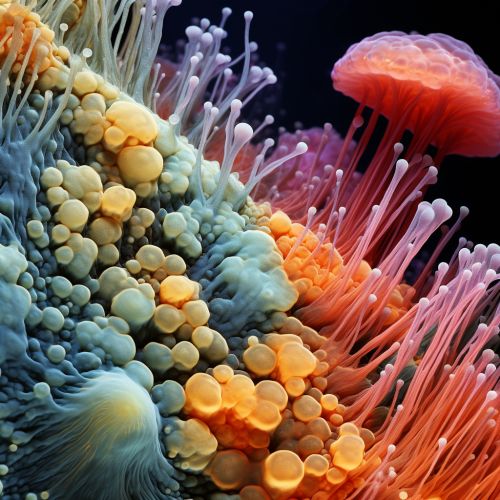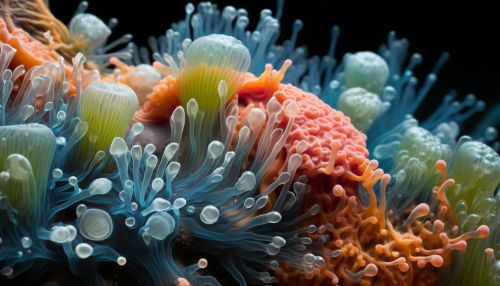Proteobacteria
Overview
Proteobacteria are a major group of bacteria, including a wide variety of pathogens, such as Escherichia coli and Salmonella, as well as some species that are significant in the nitrogen cycle. They are known for their metabolic diversity and are largely recognized by their Gram-negative cell wall structure.


Classification
Proteobacteria are divided into six classes: Alphaproteobacteria, Betaproteobacteria, Gammaproteobacteria, Deltaproteobacteria, Epsilonproteobacteria, and Zetaproteobacteria. Each class is distinguished by unique characteristics and includes a variety of species that contribute to the ecological diversity of the Proteobacteria phylum.
Alphaproteobacteria
Alphaproteobacteria are often capable of nitrogen-fixing, which is the process of converting nitrogen gas in the atmosphere into a form that can be used by plants. This class includes important bacteria such as Rhizobium, which forms root nodules in legumes and fixes atmospheric nitrogen.
Betaproteobacteria
Betaproteobacteria are a class of Proteobacteria that are often found in environments with high nitrogen content. They include Neisseria gonorrhoeae, the causative agent of gonorrhea, and Bordetella pertussis, which causes whooping cough.
Gammaproteobacteria
Gammaproteobacteria is a class of several medically, ecologically, and scientifically important groups of bacteria, such as the Enterobacteriaceae (E. coli), Vibrionaceae (Vibrio cholerae), and Pseudomonadaceae.
Deltaproteobacteria
Deltaproteobacteria include bacteria that are predators of other bacteria and are important contributors to the global sulfur cycle. The Myxococcales, or myxobacteria, are a notable example.
Epsilonproteobacteria
Epsilonproteobacteria are a class of important pathogens, including Campylobacter, which is the most common cause of bacterial foodborne illness in the world, and Helicobacter pylori, which causes peptic ulcers.
Zetaproteobacteria
Zetaproteobacteria is a class of Proteobacteria that is composed of iron-oxidizing bacteria. Mariprofundus ferrooxydans is the first identified and the most studied species in this class.
Metabolic Diversity
Proteobacteria exhibit a wide range of metabolic types, including aerobic and anaerobic respiration, and fermentation. Many Proteobacteria are facultative, meaning they can switch between different metabolic types depending on the environmental conditions.
Ecological Significance
Proteobacteria play a significant role in various ecological processes. They are involved in the nitrogen cycle, sulfur cycle, and carbon cycle. Some Proteobacteria are also involved in the degradation of pollutants, making them important in bioremediation.
Pathogenic Proteobacteria
While many Proteobacteria are harmless or beneficial, some are pathogenic and can cause diseases in humans and animals. These include Yersinia pestis, which causes plague, and Salmonella, which can cause food poisoning.
